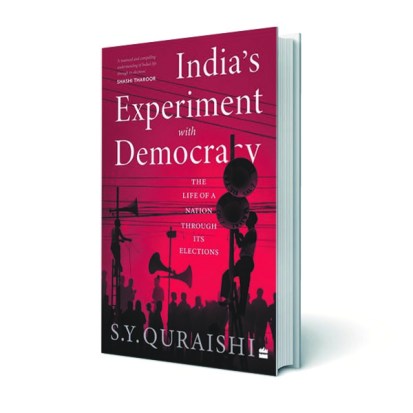By Amitabha Bhattacharya
Elections are a necessary condition for a democracy, but not sufficient for a democracy to flourish. For India to transform itself from the world’s most populous democracy to the ‘greatest’, its people, institutions, and individuals at the helm of affairs have a long way to go. Nevertheless, elections, Election Commission (EC) and election commissioners have been playing a significant role in shaping the fabric of our emergent democracy.
The process has not been smooth and despite questions being raised from time to time about the independence and credibility of the EC, there is little doubt that, on the whole, there has been steady progression over the last seven decades, thanks to the pioneering work of Sukumar Sen and the impetus provided by TN Seshan and others.
As the nation keeps maturing, aspirational citizens are seeking answers to vexatious questions, spurring debates at the local and national levels. Infallibility of the electronic voting machines is being questioned. How to discourage ‘criminal’ elements from contesting elections, how to reduce the flow and power of money either to lure voters or to induce elected representatives, how to prevent ‘horse trading’, how sound and administratively feasible is the idea of ‘one-nation-one-election’ are among the hows and whys confronted in this book, often in granular detail, by Quraishi, perhaps the most vocal chief election commissioner in the post-Seshan era.
The book has a few strengths and one weakness. Firstly, it provides a historical overview of how the conduct of elections has been streamlined. Most of us associated with elections in the Seventies and Eighties as returning officers at the district level can vouch for the palpable difference. Secondly, the author explains, marshalling sufficient facts and evidence, how decisive interventions were made by the EC—aided by technology, and supported often by the political leadership and higher judiciary, many of which are not widely known. Thirdly, the author highlights the reforms required to be undertaken urgently, and shows how opportunities were missed by different organs of the state over the years.
On electoral reforms, Quraishi discusses the pros and cons of the idea of simultaneous elections, pins hope on the higher judiciary to tackle criminalisation of elections (aware that the executive and legislature are unlikely to move much in this direction), pleads for state funding for political parties while questioning the opacity of the existing electoral bond scheme, laments about ‘exit polls’ undermining the election process, and also touches upon the ‘freebies debate’ in an unequal democracy. Although these issues are not new, what is interesting is the way Quraishi has framed the questions, contextualised them, and expressed his clear opinion on the way forward.
Besides questioning the lack of transparency of the electoral bonds, Quraishi has flagged certain concerns, like ‘its heavy bias in favour of the ruling party’, or that ‘if any foreign country is financing our elections, it will now be a protected secret’, and suggests “…just disclose the identity of the donors and the recipients”. Recently, former EC Ashok Lavasa in an article in The Indian Express dated November 14 also made certain innovative suggestions. Hopefully, the Supreme Court (SC), seized with the matter, will come out with its verdict shortly.
Quraishi is critical of the SC judgment (2018) on decriminalisation of politics that says “it cannot play the role of parliament”, and puts the onus on the commission. The EC had earlier proposed to “bar candidates accused of offences punishable with at least five years imprisonment from contesting elections after charges are framed against them by a court”.
While opposition to this idea by political parties is understandable, though not always excusable, one should also keep in mind the ease with which, especially in a charged political context, an opponent can be ‘framed’ by the police and ‘charged’ by a lower court.
Quraishi hoped that ‘judicial activism’, in the absence of executive or legislative will, would validate the EC’s proposal. Besides the whole gamut of the electoral process, some other important topics like On Women and Transgenders in Democracy, Evaluating Democracy, Religion and Secularism, and Indian children and Youth, have also been discussed, the last one, for example, deliberating on the consequences of divisive politics on children, the polluting of young minds, and the duty of the young.
Against many intrinsic strengths of the book, the shortcoming is its poor editing. Its size can be considerably reduced if the repetitions are avoided and the rambling style somewhat reined in. Nevertheless, this is a kind of go-to book for anyone interested to learn how our elections are turning out to be more participative and involved, and how through this periodic churning, the nation is maturing as a democracy.
The author provides a balanced and largely politically-neutral view, and wishes that “Prime Minister Narendra Modi’s vision for a new India” would take care of electoral reforms.
His faith on the younger generation, bordering on the idealistic, is reflected in the book’s dedication: “To the many millions of students and civil-services aspirants… so that they may strive to make India the greatest democracy in the world.”
Amitabha Bhattacharya is a former IAS officer who has also worked in the private sector and with the UNDP

Book: India’s Experiment With Democracy: The Life of a Nation Through its Elections
Author: SY Quraishi
Publisher: HarperCollins
Rs 600, Rs 699









